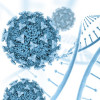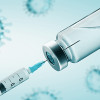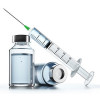Written By:
 Dr. Rashi Bahuguna
Dr. Rashi Bahuguna
 Dr. Rashi Bahuguna
Dr. Rashi Bahuguna
Published On: 30 Mar, 2021 5:44 PM | Updated On: 11 Jul, 2025 2:58 PM
Colon Cancer status in India
Colorectal cancer is the most common cancer that occurs in the colon and rectum of the small intestine and is the third most common cancer occurring in population around the globe as 1-2 million people are diagnosed with it every year and hence is the 4th most common cancer leading to death. Females are more prone to disease than males1. In India, the mortality rate is estimated to be 36476 cases and 25690 cases2.
The incidence rate of colon cancer and rectal cancer in men is found to be 4.4 and 4.1 per 100000 respectively in India. The Highest Annual Incidence rate of colorectal cancer was seen in Thiruvananthapuram with 4.1 which is followed by Bangalore with 3.7 per 100000 in 2013. While the highest Annual incidence rate in women was seen in Nagaland with 5.2 and Aizwal with 4.4 per 1000002.
A recent study in India on 224 colorectal cancer patients conducted by the cancer genome Atlas Network showed that the gene mutation patterns in the colon and rectal tissues were indistinguishable irrespective of anatomical location and origin.
The study found that 24 types of gene mutation in colorectal cancer and directly lead to DNA damage3.
A Detailed Study on Colorectal cancer and surgery was held in Tata Memorial Hospital that indicated that out of 715 patients who went for surgery of CRC 255 patients that are 35.7% were operated on for colon cancer and 460 patients that is 64.3% were operated on for rectal cancer.
The mean age for colonic cancer was 52.6 years while the mean age for rectal cancer was 47.4 years. The Data that was found out of the study is as follows4.
SIGNS & SYMPTOMS
1. Pain in abdomen
2. Weight loss
3. Bloody stools
4. Rectal bleeding
5. Tiredness
6. Bloating or excessive Gas
7. Constipation
8. Loss of appetite
9. Back pain
10. Diarrhea
11. Nausea & Vomiting
12. Abdominal cramps
13. Difficulty in urination
RISK FACTORS
- Age: There is an increased risk of developing colorectal cancer above 50 years of age due to physiological changes in the body6.
- Inflammatory Bowel Disease: It is a type of chronic inflammation or swelling that can lead to excessive cell growth called dysplasia that can ultimately lead to the formation of a tumor leading to cancer7.
- Ulcerative colitis: It is a type of disease that leads to inflammation or swelling in the digestive tract that can pave a path for tumor growth7.
- Family History: It is possible if the patient has a history of colorectal cancer in a family who is below 50 years of age8.
- Ethnicity: African Americans are proven to be at more risk8.
- Cigarette Smoking: Cigarette contains a chemical called nicotine that can cause damage to the DNA leading to tumor formation in cancer8.
- Long-term effect of insulin-like growth factors: Patients with diabetes mellitus due to insulin resistance are more prone to cancer.
- Immunosuppression: Patients with organ transplantation most commonly renal transplantation are at more risk of the development of colorectal cancer than the normal population as the immune system of the body rejects the transplanted organ.
- Physical inactivity: Physical inactivity leads to obesity in people which is associated with an increased risk of colorectal cancer due to increased hormone levels9.
- Overweight or obese: If the patient is obese it results in increased levels of hormones called leptin in the blood that leads to excessive abnormal cell growth and hence tumor in the colon or rectum9.
- Red and processed meat consumption: Cooked red meat leads to the formation of toxic chemicals in the body which results in cell growth and hence tumor in the colon or rectum10.
- Excessive alcohol consumption: Excessive alcohol intake can cause DNA damage which can cause excess cell growth leading to colon cancer.
- Genetic Mutation or changes in DNA
CLASSIFICATION OF COLORECTAL CANCER
Stage 0: It is the initial phase of disease also called a carcinoma and the abnormal tumor cells are seen on the inner lining of the rectum and colon.
Stage I: At this stage of cancer, the abnormal cells penetrate deep into the rectal and colon mucosal lining to the muscles but not other parts like lymph nodes.
Stage II: At this stage of cancer the cells spreads to the walls and other tissues of the body but not lymph nodes. It is further divided into 3 parts that is Stage IIA, Stage IIB, and Stage IIC
Stage III: At this stage of cancer abnormal tumor cells move to lymph nodes but not the other body organs and further divided into Stage IIIA, Stage IIIB, and Stage IIIC
Stage IV: This is the last stage of the disease in which the tumor spreads to all the body organs and is incurable. It further has two types Stage IVA and Stage IVB
DIAGNOSIS
Pathological Examination: Cancer tumor is examined is mostly by visible microscope11.
Blood tests: Carcinoembryonic antigen test (CEA) in blood indicated recurrence of stage cancer. Other Blood tests include a Liver function test and complete blood count12.
Colonoscopy: This is the technique in which a long cylindrical tube is inserted in the colon or rectum to see the tumor growth and in some cases, a part of the tumor cell can be removed for further laboratory investigation12.
X-ray: These are the radioactive rays that are made to fall on the body and the abnormal cells or tissues that is the tumor is visible in the colon or rectum region12.
Computed Tomography: It is the technique used to get a detailed image of the tumor in the colon or rectum12.
Sigmoidoscopy: It is the type of test in which a flexible long tube is inserted into the lower end of the intestine which is called the sigmoid colon to see the growth of the tumor and its type12.
Fecal Tests: The Feces of the patient is tested for the presence of bloody stools like fecal immunological test determines the presence of hemoglobin in the stools to detect the tumor growth while in the Guaiac-based fecal occult blood tests the stool sample detects the tumor growth if card containing stool sample changes the color12.
History Taking: The patients who are at risk or there is doubt of colorectal cancer complete past medical, medication, social habits, or any medication allergy should be determined for the further diagnosis11.

TREATMENT OPTIONS
The treatment options include Medication, surgery, Radiation, and Lifestyle modification
1. Chemotherapy: It is drug therapy that includes various types of medications to suppress the tumor growth that is medications are used to kill the cancer cells or reduce the growth of that tumor. Cells proceeded with surgery if the case is severe. Examples of the medications used are fluorouracil, capecitabine, irinotecan etc12.
Chemotherapy is done to treat the early stage of cancer that is curable Secondly; It is given to the patients before surgery and radiation therapy to kill cancer cells so that the tumor becomes operable and lastly It is given after the surgery to the patients along with radiation therapy to kill or inhibit the growth of the remaining cancerous cells in the body14.
Chemotherapy is also associated with severe side effects like Hair loss, Nausea, Vomiting, Diarrhea, Constipation, Loose motion in some cases, Weakness, Fatigue, Pain, Mouth sores, Bleeding, Fever, Loss of appetite, Heart problems, Lung tissues damage, Nerve damage, Infertility, and the patient can have a risk of developing new cancer from these drugs. Due to such severe side effects, these drugs should not be taken without physician advice as the medication is determined based on Cancer type, Cancer Stage, and previous treatment and recurrence status14.
2. Surgery: The tumor cell or tissue is removed surgically from the colon or rectum via the incision. In some cases, the tumor may spread to the walls of the rectum or colon and neighboring tissues hence the colon or rectum are removed completely by surgery. Before surgery patient is given chemotherapy to kill some cancerous cells and radiation therapy to reduce tumor size and after surgery patients are given chemotherapy along with adjuvant therapy of radiation to kill the remaining cancer cells12.
3. Radiation therapy: After surgical procedure radiation like X-rays are used to kill the remaining cancerous cells in the colon or rectum after surgery along with chemotherapy12. The radiation falling on the body damages the DNA of the tumor or abnormal cancer cells to stop their growth and hence killing them. Radiation therapy is given before surgery to decrease the tumor size for surgery. After the surgery, it is given to kill the remaining cancerous cells in the body part and Radiation therapy is also combined with chemotherapy to kill all the tumor cells in the body15.
4. Lifestyle Modification
- Avoid a fatty diet and take a more fibrous diet like green vegetables and fruits or easy bowel movements.
- Avoid eating red processed meat to avoid toxic chemical formation in the body leading to a tumor.
- Quit smoking to further prevent DNA damage and tumor on the colon.
- Decrease alcohol intake so that it does not produce toxic substances to damage the DNA that leads to cancer.
- Exercise up to the tolerated level to reduce body weight.
- Reduce stress by performing yoga or with the help of a psychologist.
- Treat diabetes as insulin resistance in the body can lead to colorectal cancer.
- Avoid protein product consumption and take plant products.
- Take a liquid diet for easy bowel movement.
- Drink plenty of water.
Following are the treatment strategies by the Indian council of medical research are as follows:
- Operable disease: It includes initial surgery including or excluding adjuvant therapy.
- Locally advanced disease: Chemotherapy is recommended before surgery.
- Isolated to a confined area disease: It incorporates incision of primary tumor including or excluding adjuvant chemotherapy.
- Widely spread disease: It is treated with chemotherapy and supportive care11.
TYPES OF COLORECTAL CANCER
- Adenocarcinomas: This tumor is formed in the cells which produce mucus in the intestine and rectum.
- Lymphoma: This is the type of colon cancer in which a tumor is first formed in a body part called lymph nodes and then progresses to the rectum or intestine.
- Sarcomas: This type of cancer occurs in soft tissues of the body like muscles in the intestine.
REFERENCES
- Stewart, B.; Wild, C.P. (Eds.) World Cancer Report 2014; International Agency for Research on Cancer (IARC): Lyon, France, 2014.
- NCRP (2013) Three-year report of the population-based cancer registries- 2009-2011. National cancer registry program, Indian council of medical research (ICMR), Bangalore, India, 2013.
- Kucherlapati, et al. "Comprehensive molecular characterization of colon and rectal cancer." Nature 487(2012): 330-337.
- Maharaj R, Shukla PJ, Sakpal SV, Naraynsingh V, Dan D, Hariharan S, The impact of hereditary colorectal cancer on the Indian population, 2014 Volume 51 (4) Page: 538-541
- Sinha Rupal, Doval DC, Hussain Showket, Kumar Kapil, Singh Shivendra, Basir SF, Bharadwaj Mausumi, Lifestyle and Sporadic Colorectal Cancer in India, Asian Pacific Journal of Cancer Prevention, Volume 16, 2015 Page 7683-7688.
- Levin, B.; Lieberman, D.A.; McFarland, B.; Smith, R.A.; Brooks, D.; Andrews, K.S.; Dash, C.; Giardiello, F.M.; Glick, S.; Levin, T.R. Screening and surveillance for the early detection of colorectal cancer and adenomatous polyps, 2008: A joint guideline from the American cancer society, the US multi-society task force on colorectal cancer, and the American college of radiology. CA Cancer J.Clin. 2008 (58) 130–160.
- Eaden, J.A.; Abrams, K.R.; Mayberry, J.F. The risk of colorectal cancer in ulcerative colitis: A meta-analysis Gut 2001, 48, 526–535.
- Johns, L.E.; Houlston, R.S. A systematic review and meta-analysis of familial colorectal cancer risk. Am. J. Gastroenterol. 2001, 96, 2992–3003.
- Frezza E E, Wachtel M S, Internati M Chiriva, Influence of obesity on the risk of developing colon cancer Gut. 2006 Feb; 55(2): 285–291.
- Consensus Document for Management of Colorectal Cancer, Indian Council of Medical Research, Page 12.
- https://www.healthline.com/health/colon-cancer#diagnosis
- Elena Sancho, Molecular mechanisms involved in colorectal cancer initiation and progression, 2007 Scientific Report Oncology Programme page 118-121.


.jpg)











Please login to comment on this article